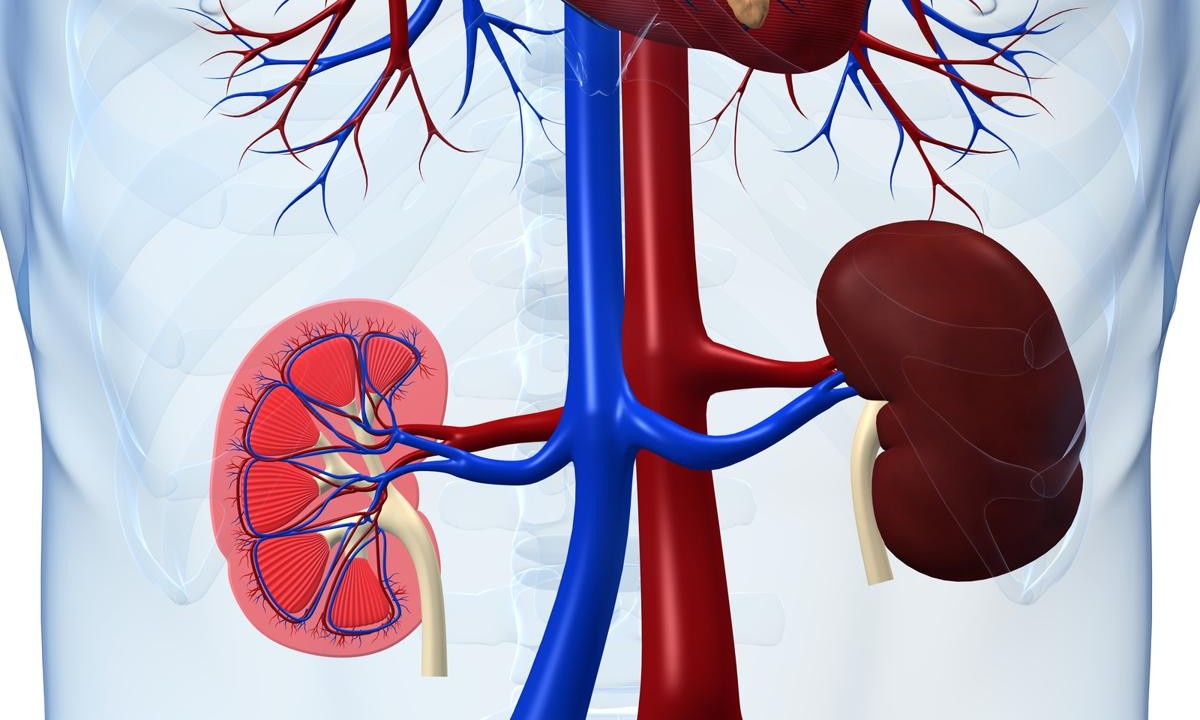
An effective treatment plan for kidney cancer can be formulated only after evaluating the condition and assessing the extent of damage. This HealthHearty article discusses some of the most commonly used treatment options for renal cancer, along with its causes and symptoms.
Kidney cancer, also known as renal cancer, refers to the cancer that originates in the kidneys. The term kidney cancer is usually not used to refer to the cancer that spreads from other parts of the body to the kidneys. There are several types of renal cancer, of which the most common type is renal cell carcinoma. Renal cell carcinoma accounts for almost 85% of the total cases of renal cancer.
Other less common types of kidney cancer include, transitional cell carcinoma and Wilm’s tumor, of which Wilm’s tumor is more common and it usually affects young children. Apart from these, there are some other types of renal cancer, but they are quite rare. The treatment of renal cancer depends to a great extent on the specific type, along with the stage in which the disease is detected.
Causes and Symptoms of Kidney Cancer
What exactly causes renal cancer is still not known. However, the studies and research conducted in this regard have been able to find out certain factors that can increase the likelihood of developing this cancer. Some of the most important risk factors for this condition are, old age, smoking, high blood pressure, obesity, long-term dialysis treatment for kidney failure, diseases like ‘Von Hippel-Lindau disease’ and ‘hereditary papillary renal cell carcinoma’, and the occupational exposure to certain chemicals like asbestos and cadmium.
The signs and symptoms of renal cancer usually become evident only in the later stage of the disease. In the early stage, this cancer is usually asymptomatic. The most common symptoms that can be observed in the later stage of the disease are:
- Blood in urine or hematuria
- A palpable mass or lump in the side of the abdomen
- Excessive fatigue
- Weight loss
- Back pain, usually below the ribs
- Fever
Treatment of Kidney Cancer
Diagnosis, as well as staging of kidney cancer can involve several tests and examinations. This cancer is usually detected with the help of blood and urine test, CT scan, MRI, and biopsy. Once cancer is detected, physicians try to determine the stage, i.e., the extent to which the cancer has spread. This may require additional MRI and CT scans at times. There are basically four stages of renal cancer – stage I, stage II, stage III, and stage IV. The treatment for this cancer basically depends on the stage in which it is detected.
Several new treatment options have been developed in the recent years for the effective treatment of kidney cancer. Today, this type of cancer is more commonly treated with surgery, cryoablation, radiofrequency ablation, embolization, chemotherapy, biological therapy, and target therapy.
Surgery
Surgery can involve the removal of the affected kidney along with the adjacent healthy tissues and lymph nodes (nephrectomy), or the removal of the tumor along with a small amount of healthy tissues surrounding the tumor (partial nephrectomy). If surgery is not possible, then this cancer can be treated with cryoablation, embolization, and radiofrequency ablation.
Cryoablation and Radiofrequency Ablation
In cryoablation, the cancerous cells are frozen with extreme cold. Usually, a hollow needle is inserted through the skin into the tumor, after which pressurized gas in the needle is used to freeze the cancerous cells. In radiofrequency ablation, the cancerous cells are burned down with the help of electric currents. For this purpose, a special needle is inserted through the skin into the tumor, and then electric currents are passed through the needle.
Embolization
Embolization is the procedure, wherein the supply of blood and oxygen to the tumor is blocked, in order to shrink it. In this procedure, a special substance is injected into the main blood vessel that supplies blood to the kidneys. This deprives the tumor of oxygen and nutrients it needs to grow. This procedure is also known as arterial embolization, and it is sometimes carried out before surgery.
Other Treatment Options
If the cancer has spread to other parts of the body, then chemotherapy, target therapy, and biological therapy can be required. Chemotherapy uses different types of cancer medications to destroy the malignant cells, and it may precede surgery at times. Biological therapy on the other hand, uses specific drugs to stimulate the immune system to fight against the cancerous cells. Target therapy is another treatment that employs drugs to block the abnormal signals, which play an important role in the growth and proliferation of the cancerous cells.
The preference for a particular treatment depends on several factors, including the general health of the patient, the type of kidney cancer, size of the tumor, and the extent to which the cancer has spread. So, a suitable treatment plan can be developed only after evaluating the condition thoroughly. You can talk to your physician to know more about renal cancer, its prognosis, and the various treatment options.
Disclaimer: This article is for informative purposes only, and should not be treated as a substitute for professional medical advice.


